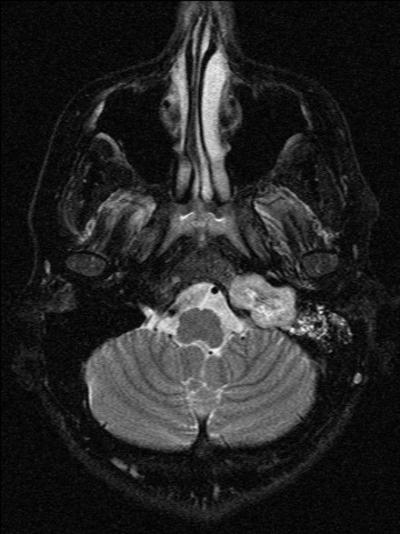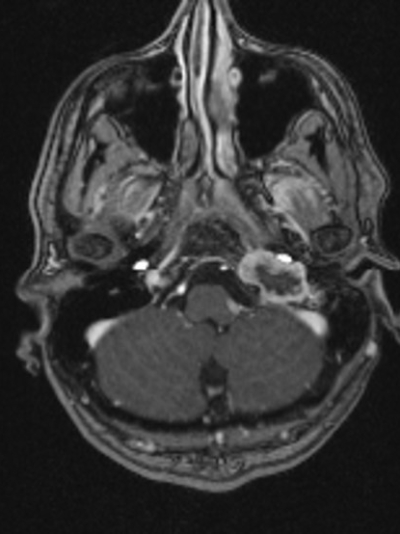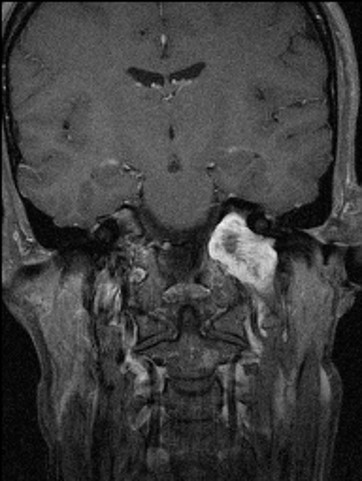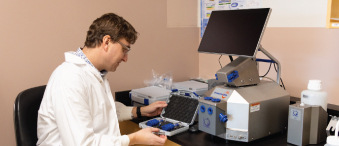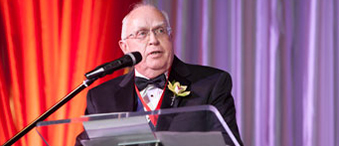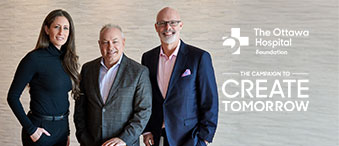It was an unimaginable brain tumour diagnosis that Natasha Lewis never saw coming. It started one morning, in 2016; the mother of three remembers waking up with a strange symptom.
“I looked in the mirror and noticed my tongue was twisting to the left,” recalled Natasha. Her first thought was that she had a stroke, but she was confused by the fact the rest of her body seemed normal.
She went for tests at The Ottawa Hospital and three days later, her life changed. Natasha was driving when she got the call. Tests revealed a tumour in her brain. “I felt so sick when I heard the news that I had to pull over.”
Diagnosis shatters mom’s world
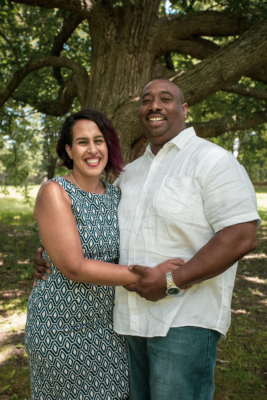
Natasha had a schwannoma tumour on her hypoglossal nerve, which controls the tongue. Schwannomas are rarely found in the brain and even more rarely on that specific nerve. Her mind was racing. “I was only 38 years old, a wife, and mother of three young children.”
When she got home to St. Isidore, east of Ottawa, she sat with her youngest daughter as she relayed the information to her husband. “I had tears falling down my face. I didn’t know what was going to happen.”
All this time she thought she was healthy. “I was losing weight, running, and training for marathons and triathlons.” All she could think about were her three, beautiful, young children. What would this mean for them?
“We’re in the right place. We’re in Canada, we’re close to Ottawa, we’ll get the best care.”
– Marvin Lewis
However, her husband, Marvin, was a pillar of strength. She remembers him saying, “We’re in the right place. We’re in Canada, we’re close to Ottawa, we’ll get the best care.” She adds, “He has never been so right.”
The challenge of non-cancerous brain tumours
Natasha was cared for at The Ottawa Hospital – one of the few hospitals in Canada that could help her because of the complexity of her diagnosis. Dr. Fahad Alkherayf, a world-class skull base surgeon told her the tumour was benign and he would closely monitor her in the months ahead.
Normally, a schwannoma is a tumour that grows in the sheaths of nerves in the peripheral nervous system, or the parts of the nervous system that aren’t in your brain or spinal cord. Schwannomas are usually low-grade tumours, meaning they can often be successfully treated, but they’re still serious and can be life-threatening. It is estimated that in 2021, there will be 27 new primary brain tumours diagnosed every day in Canada. Non-malignant tumours account for almost two-thirds of all primary brain tumours.
Condition deteriorating
Less than a year later, while the tumour had grown only slightly, Natasha’s quality of life was deteriorating.
She was scared to see what was happening with her body. Initially, there was drooling from both sides of her mouth, then Natasha started slurring her words. It was a little embarrassing, but she could handle it. In addition, swallowing became more difficult and her shoulder felt like it was on fire. That’s when she lost the ability to move it and couldn’t use it to work out. Even worse, she couldn’t lift her children.
By May 2018, it was time to operate when the side effects continued to worsen.
Surgeons ready for complex procedure
It was an intricate 10-hour brain surgery. Dr. Alkherayf brought in ear surgeon, Dr. David Schramm, a colleague at The Ottawa Hospital, to assist because of where the tumor was located. Dr. Alkherayf wanted to have another highly-skilled surgeon with him because the tumour was near the ear canal.
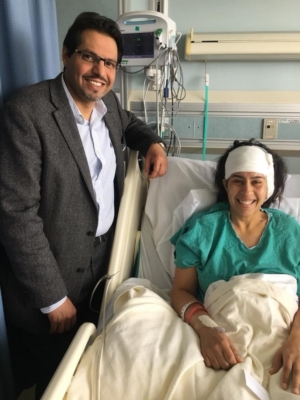
The surgical team accessed her brain through the base of the skull. While minimally invasive surgeries are becoming more common than open surgeries, where the brain is accessed through a more invasive and significant incision, it wasn’t an option for Natasha because there were too many nerves to navigate. With traditional surgery, patients can spend a week recovering in the hospital. With minimally invasive surgery, they sometimes go home the same day. In Natasha’s case, though complex and intricate, open surgery was the less risky option and she benefitted from the expertise available to her right here in Ottawa.
Dr. Alkherayf knew they likely couldn’t remove all of the tumour because of those surrounding nerves; damaging them meant Natasha might lose her ability to hear and swallow. While these risks were terrifying for Natasha, Dr. Alkherayf made her feel confident and gave her hope.
“I remember Dr. Alkherayf said there would be another chapter in my life. I held on to those words.”
– Natasha Lewis
Incredibly, her surgeons were able to remove ninety-nine percent of the tumour leaving only a small sliver so they didn’t have to cut the nerves.
Journey continues after remarkable recovery
Following her surgery, Natasha made a remarkable recovery. She has her hearing — it’s a little muffled but she’s told over time it will return to normal. She’s back at work, her speech is back to normal, and she can swallow without difficulty.
This active mom’s recovery has been nothing short of remarkable. Four months post-surgery, Natasha ran the Commander’s challenge at the Army Run. She started training for a marathon and she has the dream of qualifying for the Boston Marathon.
However, in 2019, she received news the tumour had grown back, despite being told the odds of that were low. Natasha was devastated, but her healthcare team would turn to the CyberKnife – a revolutionary piece of equipment that arrived at The Ottawa Hospital in 2010, as a result of donor support.
“At first I was nervous to have the CyberKnife treatment. I had to go by myself because we had no one to watch the kids. However, the staff was very patient, kind, and made you feel warm and safe. I was able to watch a movie and the machine did the work,” recalls Natasha. She would have three, one-hour treatments.
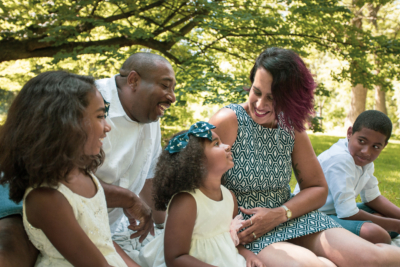
“I had to go by myself because we had no one to watch the kids. However, the staff was very patient, kind, and made you feel warm and safe.”
– Natasha Lewis
Today, she prays that “Jim,” the name she’s given the tumour, will not come back. While there’s uncertainty over what will happen next, she continues to be active with her running and most importantly, she can run, play with, and hug her three children. “I can hear them laugh and tell me they love me. There is no greater feeling in the world,” smiles Natasha.
The Ottawa Hospital is a leading academic health, research, and learning hospital proudly affiliated with the University of Ottawa.


